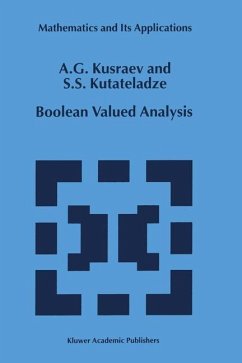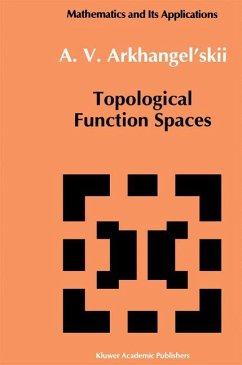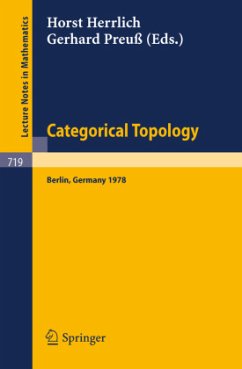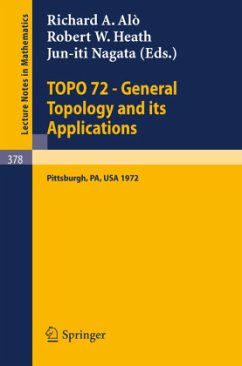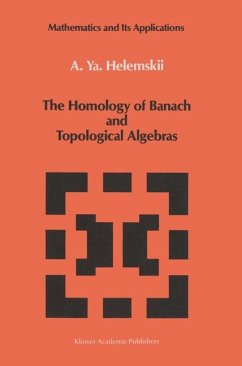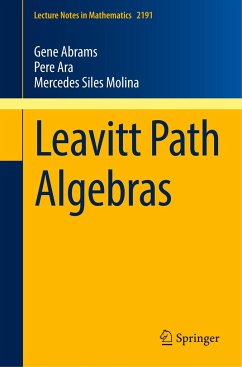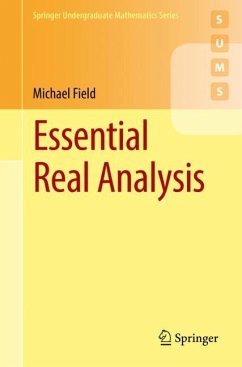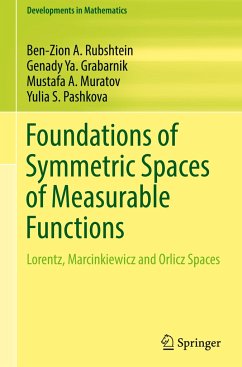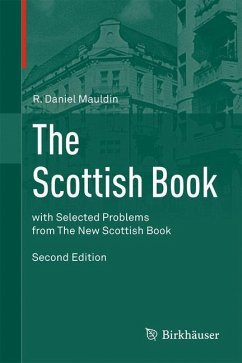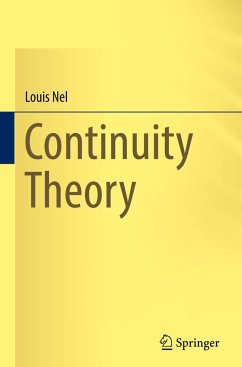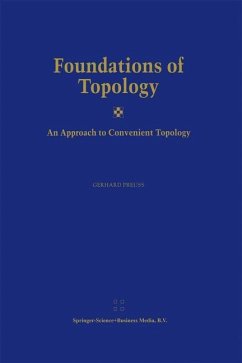
Foundations of Topology
An Approach to Convenient Topology
Versandkostenfrei!
Versandfertig in 1-2 Wochen
77,99 €
inkl. MwSt.
Weitere Ausgaben:

PAYBACK Punkte
39 °P sammeln!
A new foundation of Topology, summarized under the name Convenient Topology, is considered such that several deficiencies of topological and uniform spaces are remedied. This does not mean that these spaces are superfluous. It means exactly that a better framework for handling problems of a topological nature is used. In this setting semiuniform convergence spaces play an essential role. They include not only convergence structures such as topological structures and limit space structures, but also uniform convergence structures such as uniform structures and uniform limit space structures, an...
A new foundation of Topology, summarized under the name Convenient Topology, is considered such that several deficiencies of topological and uniform spaces are remedied. This does not mean that these spaces are superfluous. It means exactly that a better framework for handling problems of a topological nature is used. In this setting semiuniform convergence spaces play an essential role. They include not only convergence structures such as topological structures and limit space structures, but also uniform convergence structures such as uniform structures and uniform limit space structures, and they are suitable for studying continuity, Cauchy continuity and uniform continuity as well as convergence structures in function spaces, e.g. simple convergence, continuous convergence and uniform convergence. Various interesting results are presented which cannot be obtained by using topological or uniform spaces in the usual context. The text is self-contained with the exception of the last chapter, where the intuitive concept of nearness is incorporated in Convenient Topology (there exist already excellent expositions on nearness spaces).



